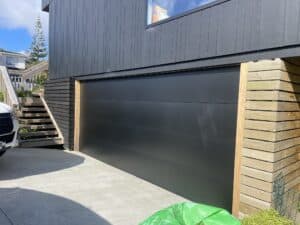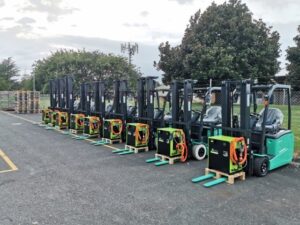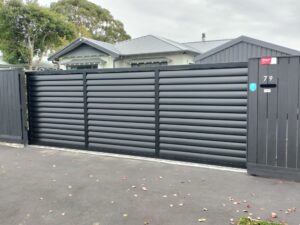When you’re living in Lower Northland, the roof over your head needs to be more than functional. It needs to stand up to salt, wind, and sun, year after year. This region is known for its punishing coastal climate, which can chew through inferior materials and expose shoddy workmanship faster than most homeowners expect. That’s why relying on qualified roofing specialists isn’t a nice-to-have. It’s a necessity.
Too often, we see the long-term cost of hiring general contractors who don’t understand the demands of Lower Northland’s environment. From early corrosion to persistent leaks, the consequences add up. This article breaks down why local roofing specialists make a real difference and how they help prevent expensive failures down the track over the full lifespan of your roof.
Key Takeaways
- Coastal weather in Lower Northland rapidly breaks down poor roofing work
- Roofing specialists bring knowledge and tools suited to marine environments
- Hiring a specialist means longer roof life, better warranties, and fewer headaches
- Site-specific expertise leads to fewer long-term issues and better asset protection
The Coastal Climate Problem No One Warns You About
Wind, Salt Spray, and UV: A Triple Threat
Lower Northland’s coastal belt faces consistent exposure to high wind, airborne salt, and strong ultraviolet radiation. These aren’t seasonal quirks. They’re year-round realities. Salt particles in the air speed up corrosion, especially on fastenings and flashing seams. UV exposure weakens roofing membranes and accelerates the degradation of coatings. High winds create uplift pressure and expose any weakness in fixings or joints.
This combination wears down even average-quality materials at an alarming rate. It demands a level of detail and material choice that generalist builders rarely consider.
Common Failures on Substandard Roofs
We’ve seen it all: colour steel corroding within three years, ridge caps blown off during a typical storm, underlays lifting and tearing under pressure. These failures are common when builders install standard roofing systems without adapting them to coastal conditions. We’ve also seen gutters rust out prematurely and silicone sealants fail within two winters. By the time issues show up, the warranty is often void and the repair bill becomes the homeowner’s problem.
Why General Roofers Often Miss the Mark
Product Misuse and Shortcuts
A generalist may know how to install a roof, but that doesn’t mean they’ll use the right gear for the environment. We’ve been called in to fix projects where non-marine-grade screws were used on coastal homes. In some cases, sub-par flashing work let in water from sideways rain. These might seem like small errors, but they can destroy a roof structure within a few years.
Another issue is inconsistent material sourcing. A roofer might substitute flashings, underlay, or screws based on availability, without checking their suitability for a marine environment. That creates hidden risks for the homeowner.
Lack of Climate-Specific Training
Most general contractors are trained to national building standards, but that’s not enough in regions like Lower Northland. You need installers who know how to adjust pitches, overlap flashings, and choose materials based on wind zones and salt exposure levels. Roofing specialists are trained with that context in mind. It’s part of their daily work.
They also understand how roof orientation and building height influence material performance. These aren’t small details. They affect how long your roof lasts and how many repairs you’ll face.
What Roofing Specialists Actually Do Differently
Code Compliance and Product Knowledge
Professional roofing specialists understand the local rules inside and out. They know which roofing profiles work in high-wind areas and which coatings can handle marine exposure. They don’t guess. They work off data sheets, BRANZ tests, and years of real-world experience in Lower Northland homes.
They also work closely with suppliers to stay updated on the latest roofing systems and protective coatings. That kind of ongoing education makes a big difference when choosing between long-term and short-term outcomes for your home.
Precision Installations and Long-Term Guarantees
Specialists typically have strong supplier relationships, meaning they can access higher-grade materials and offer meaningful warranties. Their teams work to precise installation methods that ensure every detail, from ridge cap fixing to underlay selection, is suited to the site conditions. That’s why they rarely get callbacks for leaks or repairs.
They’re also more likely to offer maintenance advice and long-term plans for care. A roofing specialist won’t install and walk away. They understand that the real test of a roof comes in year five, not week one.
Lower Northland Needs a Different Level of Expertise
Auckland Experience Doesn’t Translate
Roofers who’ve only worked in urban or inland areas often underestimate the toll coastal weather takes on materials. A technique that works fine in Hamilton or West Auckland might fail in Waipu or Ruakaka. We’ve had to replace entire roofs that were less than five years old because the builder didn’t account for marine-grade requirements.
Lower Northland’s coastal exposure is relentless. It is also slightly different from other regions. It demands experienced judgment, not textbook knowledge. That’s where local roofing specialists stand apart.
Real-World Consequences
One homeowner near Mangawhai was shocked when water started seeping through their ceiling after a modest storm. Turns out the roofer hadn’t sealed the flashings correctly, and the underlay used wasn’t designed for wind-driven rain. A qualified roofing specialist diagnosed the issue and rebuilt the affected section properly. It’s not a rare story. We hear versions of it weekly.
Another client in Langs Beach had ongoing mould problems linked to condensation build-up under the roofing membrane. The issue was traced to a poorly ventilated cavity and incorrect sarking choice. That was a textbook mistake that a specialist would have avoided from the outset.
Choosing the Right Roofing Specialists: What to Look For
Credentials and Local References
Look for a team that specialises in roofing full-time. Not one that treats it as part of a broader trade. Ask how many projects they’ve done in coastal Lower Northland and whether they use marine-grade components as standard. Reputable specialists are happy to walk you through product specs and installation methods.
Also look at who their suppliers are. Are they using proven brands with long track records in coastal conditions? Do they offer workmanship warranties that stand up over time?
Before signing a contract, it’s worth reading up on how to choose a reliable contractor for your reroofing project, especially if you’re comparing quotes from general builders and proven roofing specialists.
Smart Questions to Ask
- What roofing systems do you recommend for homes within 5 km of the coast?
- Are your fixings, flashings, and coatings marine-grade?
- Can you provide local references with similar site conditions?
- How do you handle site-specific adjustments for wind and UV exposure?
These questions weed out the generalists and help you find a team that’s built for Lower Northland’s realities. If the answers sound vague or overly confident without detail, move on.
Trust Experience That’s Built for Lower Northland Conditions
At the end of the day, the roof is your home’s first line of defence. And in Lower Northland, it needs to be built tougher. Roofing specialists understand the unique challenges of this region, and they build to withstand them. Whether you’re upgrading, repairing, or building new, working with proven experts is the best way to protect your investment long term.
Backed by solid training, coastal experience, and product-specific expertise, roofing specialists in Lower Northland aren’t guessing. They’re delivering lasting protection with every job. That kind of reliability pays off in peace of mind, resale value, and fewer emergency callouts.
For those searching for roofing specialists in Lower Northland, make sure the crew you hire knows local conditions like the back of their hand. Your home deserves nothing less. And neither does your wallet.
Have you read these articles?
 How to Choose a Reliable Contractor for Your Reroofing Project
How to Choose a Reliable Contractor for Your Reroofing Project
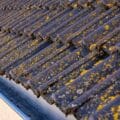 How to Choose the Right Roof Moss Treatment Service in Hamilton and the Waikato
How to Choose the Right Roof Moss Treatment Service in Hamilton and the Waikato
 The Best Rinnai Infinity Models for Coastal Homes in Wellington
The Best Rinnai Infinity Models for Coastal Homes in Wellington
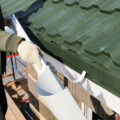 How To Choose The Best Spouting Style For Your Hamilton Home
How To Choose The Best Spouting Style For Your Hamilton Home
 Spotlight on Orthodontic Care: Aligning Jaws and Boosting Health in Kerikeri
Spotlight on Orthodontic Care: Aligning Jaws and Boosting Health in Kerikeri

